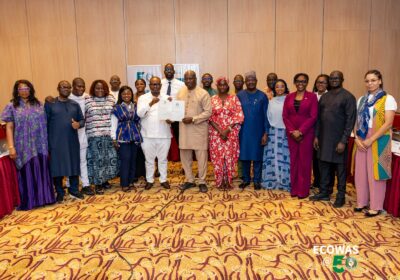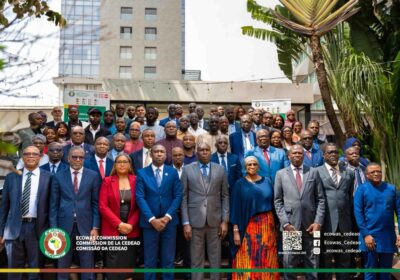Addis Ababa Declaration Ties Climate Crisis to Rising Insecurity, Demands Justice and Media Freedom.
By Raymond Enoch
In a landmark gathering that underscored the deepening intersection of climate change, security, and democratic freedoms in Africa, stakeholders from across the continent adopted the Addis Ababa Declaration—a powerful statement tying the worsening climate crisis to escalating insecurity, and calling for global climate justice and protection of media freedoms.
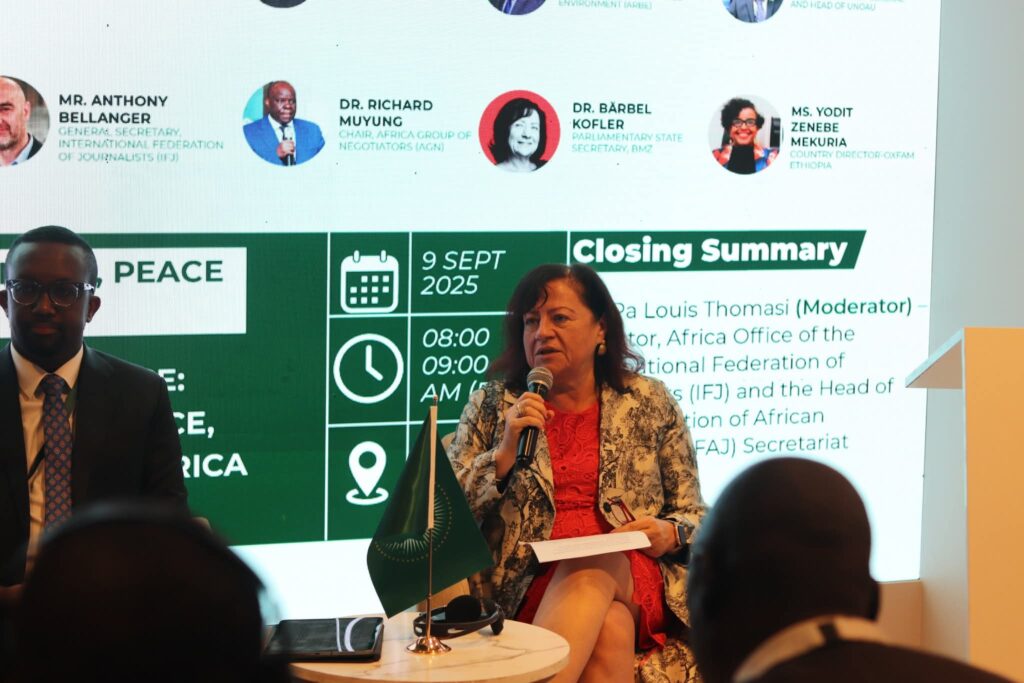
The high-level forum, convened under the leadership of the African Union’s Department of Political Affairs, Peace and Security (PAPS) in collaboration with the Federation of African Journalists (FAJ), brought together civil society leaders, journalists, policymakers, youth representatives, and climate experts to confront the multifaceted impacts of climate change on Africa’s peace and governance landscape.
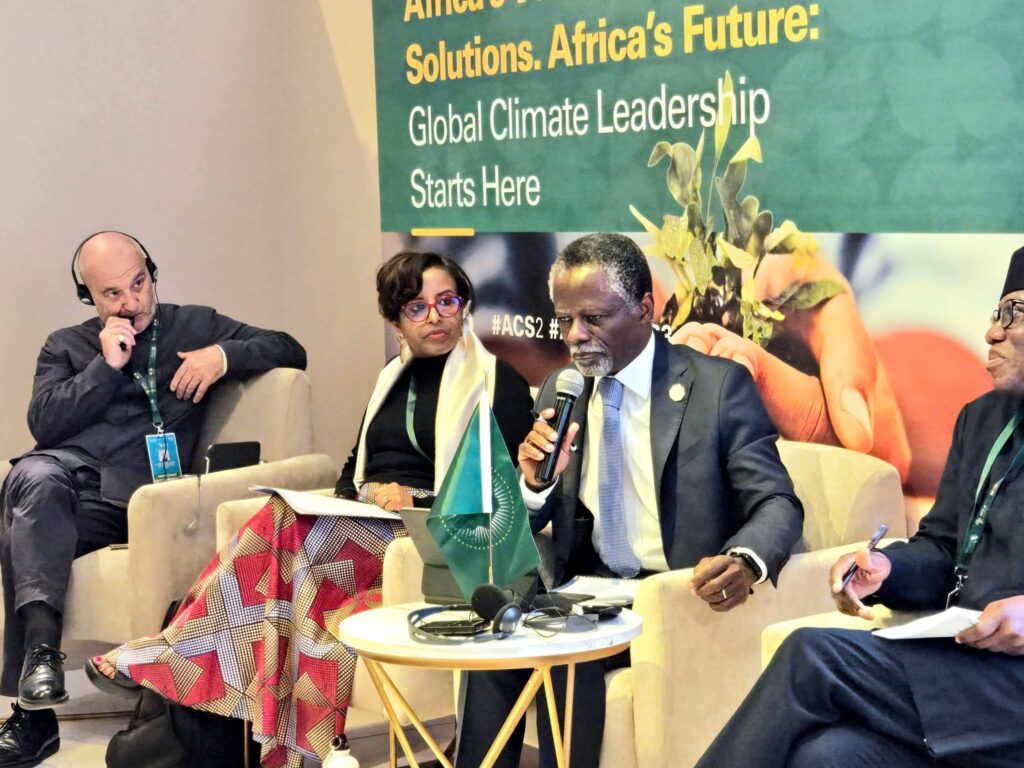
Participants emphasized that climate change is no longer merely an environmental or developmental issue—it has evolved into a critical driver of conflict, displacement, food insecurity, and human rights violations across the continent. From the Sahel to the Horn of Africa, increasingly erratic weather patterns, prolonged droughts, floods, and land degradation are intensifying local grievances, fueling resource-based conflicts, and undermining fragile peace processes.
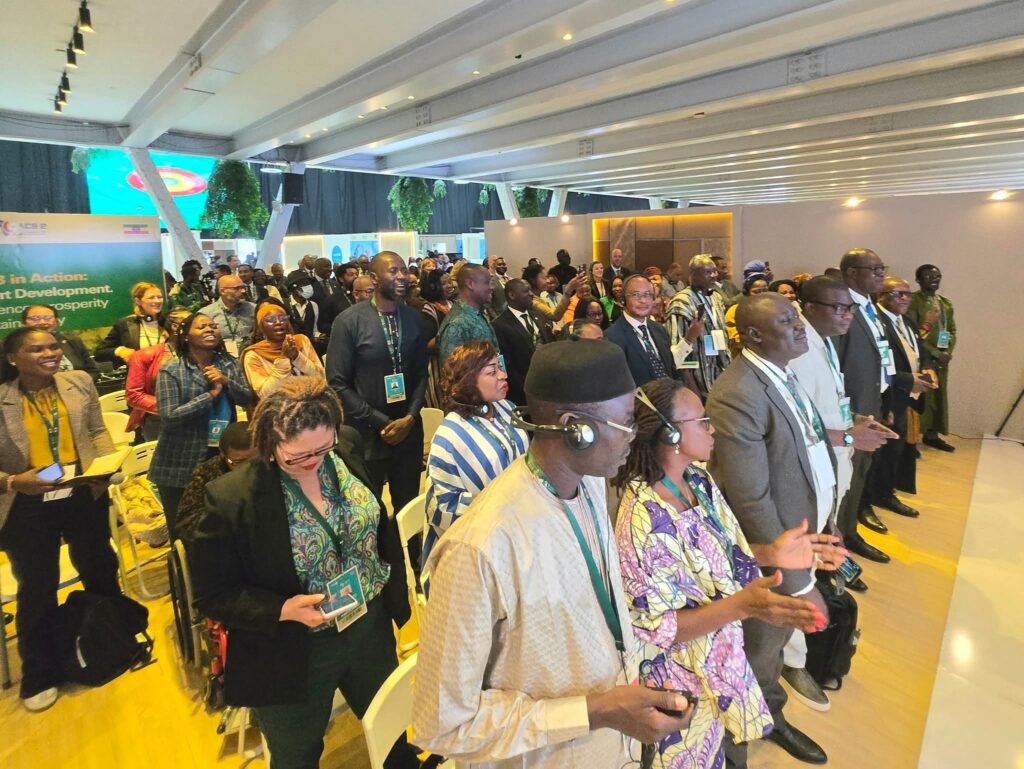
“Climate change is becoming a catalyst for crisis in Africa. Its impact is visible in rising tensions over land, water, and livelihoods, and its victims are often the most vulnerable communities,” stated one of the Declaration’s lead drafters.
At the heart of the Declaration is a call for the international community to reframe climate finance as a matter of justice—not charity. The document underscores the historical responsibility of high-emission countries and demands that promised climate financing—especially for adaptation and loss and damage—be delivered with urgency and equity.
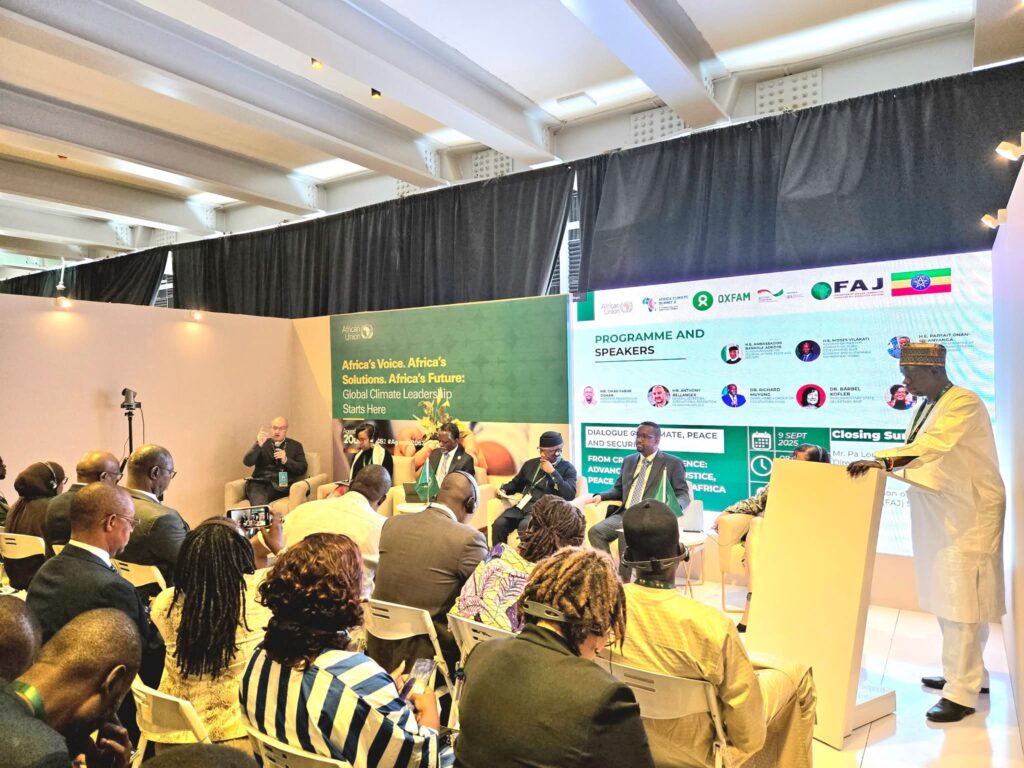
Despite contributing the least to global emissions, Africa remains one of the most severely affected regions by climate-induced disasters. The Declaration calls for scaling up climate finance to support mitigation and adaptation strategies, particularly in frontline communities, and warns that continued delay in delivering these funds undermines development, stability, and trust in multilateral systems.
In a powerful acknowledgment of the role of the media and civil society, the Addis Ababa Declaration also draws attention to the growing threats to press freedom and democratic accountability, especially in conflict zones and authoritarian contexts where climate impacts are often hidden or distorted.
Journalists face increasing harassment, censorship, and violence for reporting on climate injustice, corruption, and governance failures. The Declaration calls on governments to uphold the rights of media practitioners, protect the integrity of public information, and ensure the free flow of climate-related data and stories.
“Without a free press and active civil society, climate justice cannot be achieved,” said a representative from the Federation of African Journalists. “Journalists are not just storytellers—they are watchdogs, defenders of democracy, and amplifiers of the voices often excluded from policy conversations.”
The adoption of the Declaration is seen as a turning point in Africa’s climate diplomacy, weaving together environmental urgency, social justice, peacebuilding, and human rights. It repositions Africa not merely as a victim of climate change but as a moral voice and agent of change in the global climate conversation.
As the continent prepares for the upcoming 80th Session of the United Nations General Assembly (UNGA80) and other major international climate platforms, the African Union, FAJ, and the AU’s Economic, Social & Cultural Council (ECOSOCC) have pledged to carry the Declaration’s demands forward. A series of side events, multilateral engagements, and diplomatic campaigns are planned to ensure Africa’s position is heard and acted upon at the highest levels.
The Addis Ababa Declaration closes with a resounding message: climate action must be just, inclusive, and rooted in the protection of rights, freedoms, and human dignity. Anything less would not only fail the people of Africa but imperil global peace and stability.




